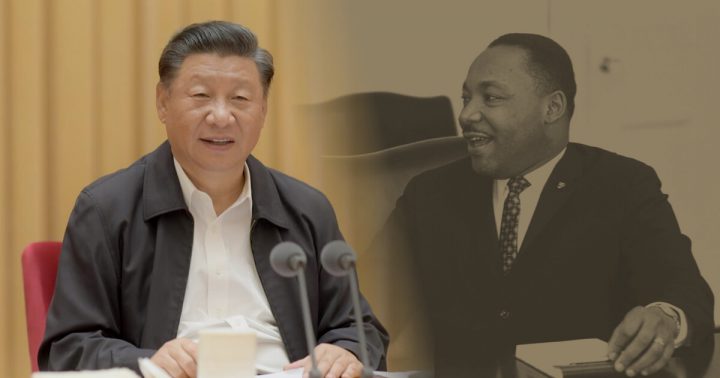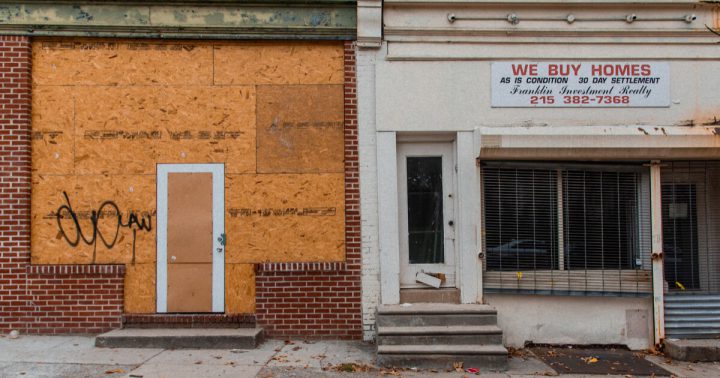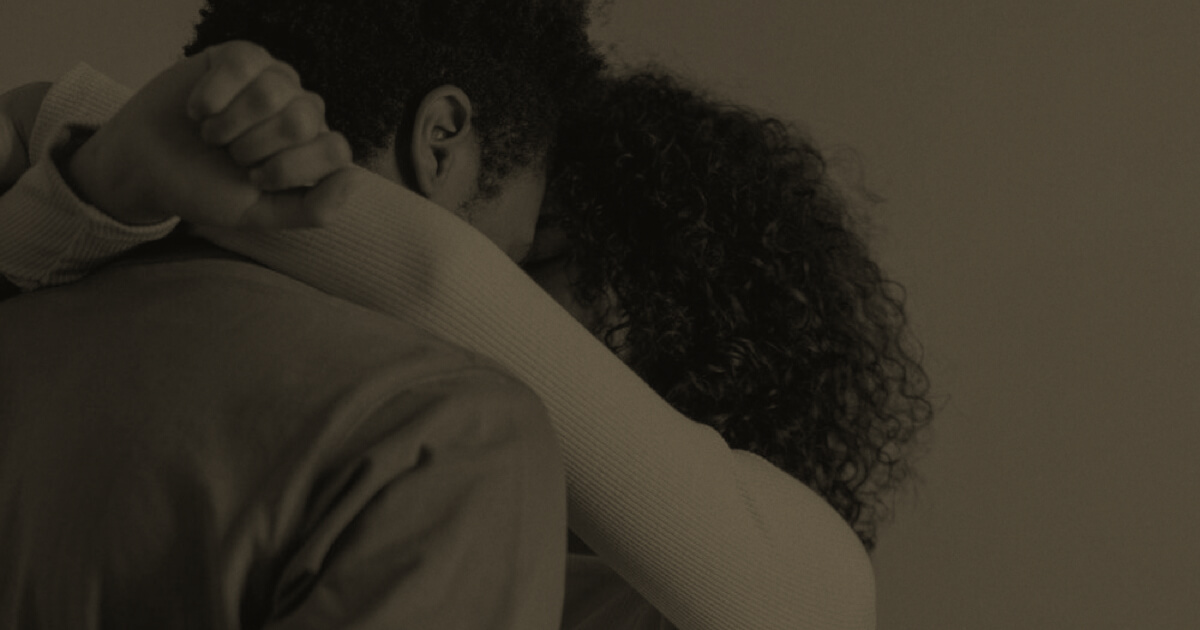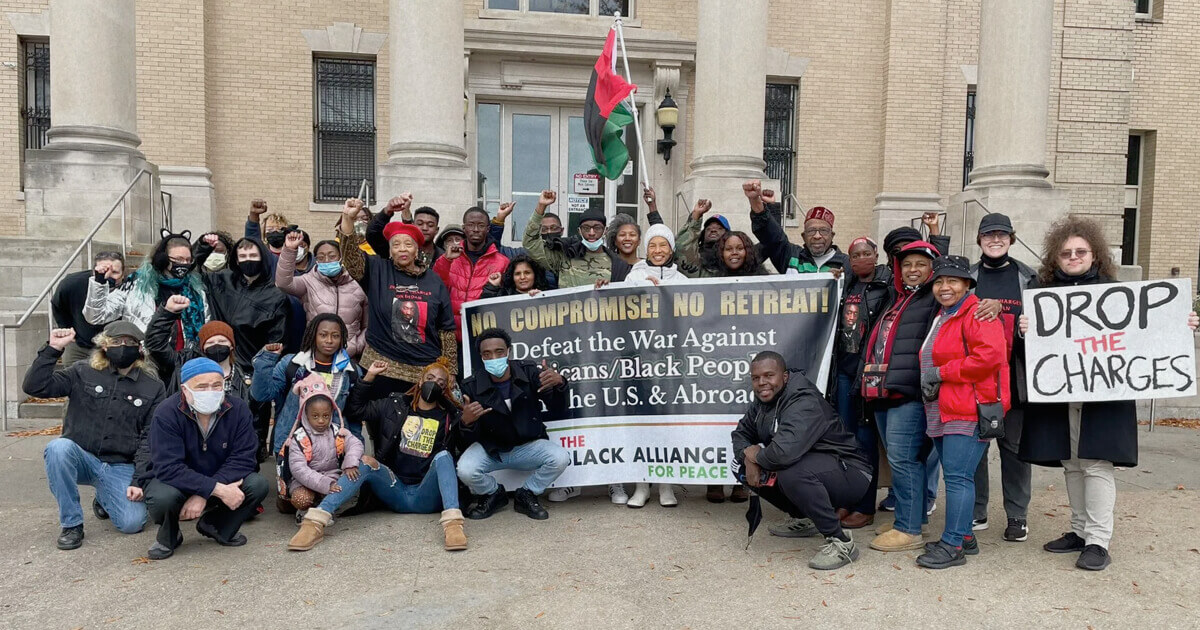For as long as most of us can remember, the professional managerial class (PMC) has been fighting a class war, not against capitalists or capitalism, but against the working classes.
Members of the PMC have memories of a time when they were more progressive — during the Progressive Era, specifically. They once supported working-class militancy in its epic struggles against robber barons and capitalists like Mrs. Leland Stanford Jr., Andrew Carnegie, John D. Rockefeller, and Andrew Mellon, but today, they go to Stanford and view private foundations bearing those same names as models of philanthropy and sources of critical funding and recognition.
They still believe themselves to be the heroes of history, fighting to defend innocent victims against their evil victimizers, but the working class is not a group they find worth saving, because by PMC standards, they do not behave properly: they are either disengaged politically or too angry to be civil. Liberal members of the credentialed classes love to use the word empower when they talk about “people,” but the use of that verb objectifies the recipients of their help while implying that the people have no access to power without them.
The PMC as a proxy for today’s ruling class is shameless about hoarding all forms of secularized virtue: whenever it addresses a political and economic crisis produced by capitalism itself, the PMC reworks political struggles for policy change and redistribution into individual passion plays, focusing its efforts on individual acts of “giving back” or reified forms of self-transformation. It finds in its particular tastes and cultural proclivities the justification for its unshakable sense of superiority to ordinary working-class people. If its politics amount to little more than virtue signaling, it loves nothing more than moral panics to incite its members to ever more pointless forms of pseudo-politics and hypervigilance.
The much-maligned Hillary Clinton was honest in her contempt for ordinary people when, in 2016, she dismissed Trump supporters as “deplorables.” Their 2016 defiance of PMC and liberal nostra has only hardened into reactionary antiauthoritarianism, which another reactionary demagogue will seek to exploit. PMC virtue hoarding is the insult added to injury when white-collar managers, having downsized their blue-collar workforce, then disparage them for their bad taste in literature, bad diets, unstable families, and deplorable child-rearing habits.
When the PMC sympathized with the plight of masses of working people, it also pioneered professional standards of research grounded in professional organizations like the American Medical Association, the Association of University Professors, and all the professional organizations that currently dominate academic life. In organizing professional life, the PMC tried to protect the integrity of specialists and experts against the power of capitalists and the markets. From Jane Addams to John Dewey, members of the early American PMC established academic freedom and the role of research in guiding public policy as critical to the development of industrial democracy. In doing so, the first social workers, muckraking journalists and radical social scientists, were following the lead of American workers and the Socialist Party led by Eugene Debs in a millennial struggle for worker power. 1 Those heady days of PMC heroism are long gone.
The PMC, with its professional discipline and aura of disinterestedness, did very well for itself during the Depression, during World War II, and in the postwar period with the expansion of universities and the growing complexity of the American and social economic order. When the tide turned against American workers, the PMC preferred to fight culture wars against the classes below while currying the favor of capitalists it once despised. The culture war was always a proxy economic war, but the 1960s divided the country into the allegedly enlightened and the allegedly benighted, with the PMC able to separate itself from its economic inferiors in a way that seemed morally justifiable.
It was after 1968 that the PMC gradually shifted its allegiance from workers to capital. Since that time, the most successful and visible segments of the PMC have brazenly put their smarts at the service of the bosses. If Marx theorized that class struggle was the engine of historical change and the political agent of it the proletariat, the newest incarnation of the PMC tries to make history by undermining working-class power and ignoring working-class interests. The post-1968 PMC elite has become ideologically convinced of its own unassailable position as comprising the most advanced people the earth has ever seen. They have, in fact, made a virtue of their vanguardism. Drawing on the legacy of the counterculture and its commitment to technological and spiritual innovations, PMC elites try to tell the rest of us how to live, and in large part, they have succeeded in destroying and building in its own image the physical and now cybernetic infrastructure of our everyday lives. 2
As the fortunes of the PMC elites rose, the class insisted on its ability to do ordinary things in extraordinary, fundamentally superior and more virtuous ways: as a class, it was reading books, raising children, eating food, staying healthy, and having sex as the most culturally and effectively advanced people in human history. While the conservative critique of this “new” class, whether from Herman Kahn, William F. Buckley, Newt Gingrich, or David Brooks and Tucker Carlson, is pure media theater, its condemnation of liberalism’s secret contempt for ordinary people rings true. Right-wing pundits heard the rage of ordinary people, but they weaponized that feeling for reactionary political purposes.
No one has been as effective at mobilizing popular resentment of the PMC as Donald Trump. He merely stepped in to take advantage of decades of successful conservative propaganda positioning PMC liberalism as the enemy of the people and popular interests. Trump never pretended to be virtuous: his id-driven politics and lack of self-control formed the core of his appeal to those who felt scorned by the liberal superego. To defeat reactionary politics masquerading as populism, we need anti-PMC class struggle from the Left, not more identity politics, which has become just another vehicle of PMC virtue signaling. The Democratic Party, however, is not the political organization that will lead us in a struggle against capitalism and its deeply destructive system of exploitation and rent seeking.
My brief introduction to the PMC is polemical: for a recent “objective” account of the term, one need look no further than Gabriel Winant’s “Professional Managerial Chasm: a Sociological Designation Turned into an Epithet and Hurled Like a Missile,” for N+1. 3 Unlike Winant’s article, the work represented here is not a neutral piece of professional scholarship, refining terms and their definitions, insisting on nuance, and then finger wagging at those on the Left who are allegedly uncivil, who cannot hold polite discussions, and who hurl epithets at their enemies like missiles. Winant believes in liberal virtue; I do not. Winant published his PMC apologia and his left-bashing article at a time when Elizabeth Warren was leading in the 2019 polls, before voting began in the Democratic primaries. Warren failed to place second or sometimes even third or fourth in all the states that voted. Winant urged Sanders’s supporters to bend the knee and reconcile themselves to Warren’s brand of progressive professionalism. He did not foresee that it was Sanders who would win primary after primary while voters resoundingly rejected Warren’s brand of limited progressivism.
The reasons for this rejection are manifold, but centrists and liberals want to ignore popular distrust of incremental solutionism by dismissing the collective desire for radical economic reorganization. In the United States, generations of allegedly neutral experts have hollowed out public goods, degraded the public sphere, facilitated the monetization of everything from health to aptitude, and indebted generations of Americans in a fantasy of meritocracy enhanced social mobility. 4 Liberals have sat by while finance capital and corporate interests gutted the public treasury. Winant, however, historicizes the PMC and asks us not to abandon its values.
In criticizing the PMC by offering a polemical account of its morals, I hope to weaken its power over the way we think about politics. The endgame in my critique is a return to socialist politics and socialist policies, once marginalized by PMC thought leaders and made visible by the historic 2016 and 2020 presidential campaigns of Bernie Sanders. Now that we have seen the results of the 2020 Democratic primaries, however, I am even more sure that Warren and the rest of the PMC will be standing in the way of real political change. Angling for a place in the new Biden administration, Warren has proven herself more interested in her own professional ascendancy than in the political ideology and social values that she and Sanders are supposed to share.
According to John and Barbara Ehrenreich, the PMC is made up of “salaried mental workers who do not own the means of production and whose major function in the social division of labor may be described broadly as the reproduction of capitalist culture and capitalist class relations.” 5 While Siegfried Kracauer and C. Wright Mills described white- collar workers as clerks, salespeople, and office workers who were shielded from physical labor, the Ehrenreichs’ PMC comprises de-racinated, credentialed professionals, such as culture industry creatives, journalists, software engineers, scientists, professors, doctors, bankers, and lawyers, who play important managerial roles in large organizations. During the 1960s, young members of the class saw Robert McNamara, prosecutor of the Vietnam War, as the clear enemy of progress: for them McNamara was a cold-blooded killer, but he was simply a very high level member of their class. Today’s PMC may not wear pocket protectors, but it has overseen the devastation of the lives and livelihoods of poor and working-class Americans of all races, genders, and sexualities in the name of equality of opportunity, competitiveness, austerity, and efficiency. Since the 1970s, PMC elites have been happy to abandon mass politics to reproduce the social division of labor and the widening gulf between those who prosper under late capitalism and those who do not.
American conservatives have shown themselves more willing to talk about class antagonism than liberals like Winant. For instance, in an article called “The Real Class War,” American Affairs editor Julius Krein described the current political situation in America as one shaped by class war between the 0.01 percent and the top 10 percent, or the PMC. For him, the American working class has been so beaten down that it has no political agency at all. For Krein, a better, more enlightened PMC has to emerge to reverse policies that have intensified inequality across every economic stratum. More militant than Winant, Krein urged PMC elites to act in their self-interest to fight against “intra-elite inequality: in order to help the immiserated working class to overthrow our own ‘pathetic’ oligarchs, the lower tiers of the PMC must lead the fight against alienation and exploitation.” 6 In the same issue of American Affairs, Krein published Amber Frost’s “The Characterless Opportunism of the Managerial Class,” a counterpoint article in which the author argues that the PMC is composed of unreliable, shape-shifting “rear guarders.” 7
In 2019, Michael Lind published The New Class War: Saving Democracy from the Managerial Elite. In this book, Lind wants to resuscitate the American ideal of a classless society, and he blames the managerial elite for the rise of Anglo-American populism. I do not entirely disagree. Lind also denounces the PMC for its demonization of the working-class rejection of centrist incrementalism. Lind is that strangest of creatures, an antisocialist advocate for working-class power. 8 As such, he is able to address the failings of Occupy Wall Street and its neglect of class conflict for anarchist proceduralism and the cultural turn that facilitated such politics, but his goal of securing a lasting class peace implies a neat, negotiated resolution to class antagonism that is managerial and administrative rather than political and objective. What terrifies Lind and most centrists, conservative and liberal, is the idea that really, implemented socialism, as a form of political governance, is not the end of class struggle but only its real beginning.
As a class, the PMC loves to talk about bias rather than inequality, racism rather than capitalism, visibility rather than exploitation. Tolerance for them is the highest secular virtue—but tolerance has almost no political or economic meaning. The Right is well aware of liberal preening, and it has weaponized popular resentment against this class of alleged hypocrites. Fox News lives to own liberals; reactionary hatred of professionals and professionalism come not out of love for the people but out of fealty to the special sovereignty of free markets to solve all social problems. In fact, conservatives need a functioning and powerful PMC cadre of inhibited professionals to serve as punching bags for their politics of popular resentment. The PMC continues to oblige these reactionaries by betraying popular policies like Medicare for All, opting instead for means-tested, think tank–brewed Big Pharma and lobbyist-approved forms of health care that allow for profit taking to take place at the expense of public health and health care workers. Insurance companies have doubled their profits since the beginning of the coronavirus pandemic. Their most powerful lobbyists have the Democratic Party in their thrall. It turns out that PMC virtue is also the color of money.
Although the PMC is profoundly secular in nature, its rhetorical tone is pseudo-religious. While the PMC infuriates conservative Christians with its media monopoly on liberal righteousness, it finds salvation, like most Protestant sects, in material and earthly success. In liberal circles, talking about class or class consciousness before other forms of difference is not just controversial;it is heretical. 9 They call you a “class reductionist” if you argue that race, gender, and class are not interchangeable categories. They pile on with the legalistic and deadly term intersectional to accommodate the materialist critique of their politics. The PMC simply does not want its class identity or interests unmasked. Young people wanting to enter what the Ehrenreichs called the “liberal professions” and gain positions in academia and the culture and media industries have had to adapt themselves to the Procrustean bed of PMC-dominated networks of influence.
Anyone who wants to privilege class critique should be prepared to be thoroughly red-baited and asked questions like “Why do you wear presentable clothes when you’re a socialist? Shouldn’t you wear burlap sacks?” and “Why do you enjoy sports? Isn’t that part of the military–industrial complex?” and “Why do you encourage conflict? Aren’t you irresponsibly fomenting violence?” PMC elites believe that asceticism is the fate of the leftist and that any kind of social conflict arising from corrosive inequality is her fault. In promoting these casual assumptions about leftism, the PMC defends capitalism as the purveyor of both luxury and harmony. Gabriel Winant’s characterization of the Left’s warlike language is just one example of liberalism’s attempts to discipline its antagonist, the socialist who takes issue with the PMC. What leftists must accept is that for us, there is no class without class antagonism and class contradiction. I do not opine on the PMC because I hope to have a civil discussion about our differences: I am writing this critique to isolate the PMC’s historically grounded, virtue- hoarding politics of liberal refusal to adopt and support the social and political changes we desperately need.
In 1977, the Ehrenreichs were the first to predict that PMC values and ideology would dominate liberal and eventually neoliberal politics for the foreseeable future. Since they published their essay, the class and its defining characteristics have evolved and morphed as its powers have expanded and capitalism has become even more predatory. In fact, the fungibility of the PMC is part of the class’s structural dynamism. The Ehrenreichs’ analysis allows us to isolate and identify the hegemony of a class that has, in its most recent incarnation, become desperate to hold on to the power it has accrued since the 1970s. 10 The dark social consequences of its monopoly on expertise, in addition to its attempts to monopolize public virtue while blocking any attempts at meaningful economic redistribution, have given shape to our present political situation.
The Ehrenreichs drew from Siegfried Kracauer’s study of interwar salaried masses in Berlin, who were the quintessentially deluded political subjects. They despised anyone who did physical labor and dreamed about instant luxury and wealth while enthusiastically writing their own pink slips. C. Wright Mills condemned the postwar white-collar worker as hopelessly identified with selling and thought of this particular worker as particularly susceptible to market discipline and its prefab, reified versions of personality and intersubjectivity. Christopher Lasch believed the white- collar, managerial classes to be hopelessly and collectively hypnotized by their own narcissism. 11 For the Ehrenreichs, the contemporary PMC embodies all of these qualities identified by left social critics of the past, but the new elites of this class have weaponized their identification with capitalism. Even though they look down on the vulgarity and stupidity of the masses, they are entirely indifferent and even hostile to the professional protocols and norms defended by their liberal precursors. They actually hold in high value a tradition- and history-busting form of entrepreneurialism that courts publicity and hates hierarchy and organization.
Since you are reading this book, you are probably, like me, an ambivalent member of the PMC. I am at best a second-generation PMC person, but I do not like what I see of my class, and I am determined to fight to socialize the things that the PMC wants to hoard: virtue, grit, persistence, erudition, specialized knowledge, prestige, and pleasure, along with cultural and actual capital. To define the changing contours of a class to which one partially belongs is to enter into the difficult process of political self- criticism, beginning with an exfoliating and brutal reconceptualization and historicization of one’s own values, sensibilities, and affects. To renounce one’s narcissistic fetishization of intelligence or refinement is not a simple act. This short introduction aims at helping us do the necessary work of self-criticism while providing a few tools to attack PMC positions in its best-defended redoubts—political organizations, publishing, media, private foundations, think tanks, and the university.
While the Right represents an obdurate obstacle to economic reorganization and large-scale social redistribution, it is actually the liberal PMC that stands in the way of the political revolution necessary to forge a different kind of society and world, one in which the dignity of ordinary people and the working class takes center stage. The PMC is deeply hostile to simple redistributive policies that a Bernie Sanders presidency would have implemented: it is against the idea of building solidarity among the oppressed. It prefers obscurantism, balkanization, and management of interest groups to a transformative reimagination of the social order. It wants to play the virtuous social hero, but as a class, it is hopelessly reactionary. The interests of the PMC are now tied more than ever to its corporate overlords than to the struggles of the majority of Americans whose suffering is merely background décor for the PMC’s elite volunteerism. Members of the PMC soften the sharpness of their guilt about collective suffering by stroking their credentials and telling themselves that they are better and more qualified to lead and guide than other people.
PMC centrism is a powerful ideology. Its priorities in research and innovation have been shaped more and more by corporate interests and the profit motive, while in the humanities and social sciences, scholars are rewarded by private foundations for their general disregard for historical knowledge, not to mention historical materialism. The rewards for following ruling-class directives are just too great, but the intellectual and psychic price that has to be paid for compliance should be too high for any member of society. In academia, the American PMC has achieved a great deal in establishing the rigors of peer review consensus and research autonomy, but we can no longer afford to defend its cherished principle of epistemological neutrality as a secret weapon against “extremism.” We live in a political, environmental, and social emergency: class war over distribution of resources is the critical battle of our times.
In Fear of Falling: The Inner Life of the Middle Class, Barbara Ehrenreich’s follow-up to the 1977 essay on the PMC, Ehrenreich argued that growing PMC class antagonism against working-class people was animated by growing economic fear in reaction to right-wing attacks on social and public services, now combined with countercultural contempt for ordinary people. By the Reagan era, the hippie had morphed into the yuppie, or young urban professional, who could boast of an intense attachment to the nonpareil pleasures and instant gratifications enabled by the American Express card. 12 As economic redistribution from top to bottom came to an end, and rent-seeking capitalists were no longer vilified in the popular imagination, the yuppie briefly took center stage in the American imagination as a figure who pointed the way to a gaudy, self-indulgent future. According to Ehrenreich, the yuppie reconciled 1960s hedonism and 1980s debt-fueled consumerism. Prayer beads became Rolexes, but the tradition-busting ethos was the same: pleasure will set you free. The young urban professional mocked the ideals of economic disinterestedness and elite public service that had characterized the old PMC. The celebration of the pure power of money was embodied both by the fictional Patrick Bateman, the homeless and prostitute-murdering, coke-addled Wall Street trader of American Psycho, and the real-life Donald Trump. In American Psycho, Bret Easton Ellis makes yuppie sadism seem transgressively antiliberal, exciting, and glamorous. 13
By the 1980s, PMC elite fantasies about ordinary middle-, lower-middle-, and working-class Americans were colored by both yuppie and hippie fantasies: ordinary people were trapped in stultifying stable jobs, deferred gratification, and social conformity. They were like Flaubert’s village idiots, but infuriatingly, they enjoyed good pensions and benefits. If the hippies hated the stability achieved by the union-negotiated peace with postwar corporations, yuppies actually went ahead and destroyed the institutions of lifetime-guaranteed employment through leveraged buyouts that led to blue- and then white-collar downsizing.
Yuppies were not American psychos or charismatic sociopaths—they were boring, anxious, and conformist— but they did represent a new face of the PMC elite: they served new masters and enjoyed the rewards of that service. When Jack Welch took over General Electric in 1981, he personified as a super yuppie the ethos of management for stockholder value. Welch relied on a cadre of PMC cost cutters and “set out to raise the stock price by cutting the workforce.” 14 More than seventy thousand GE employees lost their jobs on Welch’s watch, and his managerial abilities were loudly celebrated in the business press and across business schools all over the world. Stockbrokers and upper management were well rewarded for their work in downsizing workforces. Yuppies helped to birth a new world for capitalism, a world of public austerity and private luxury, globalized economies and shiny cities surrounded by devastated hinterlands, a world of offshored labor and lightning-quick capital flows. They executed neoliberalism’s orders, and they snorted coke while they were at it, their alleged vanguardism only limited by their credit card limits.
The more Reagan tore away at the social safety net, the more the poor appeared to the fragile middle class as nightmarish doubles of who they would be if they were to lose their toeholds on bourgeois respectability. The PMC saw the classes below them through the eyes of the ruling class, and they could not distance themselves fast enough from the immiserated poor. As downward social mobility became a terrifying reality, poor people were increasingly seen as the monstrous other. Poverty was racialized and the poor were demonized in right-wing talking points. In the time of Reagan, a new narrative of poverty emerged: poor people had no impulse control. They did not live within their means: the story began in the 1960s, when Daniel Moynihan argued that poverty was a question of “culture.” 15 By the 1980s, the American middle class was terrified of falling into the classes below it, and its own financial well-being was, objectively speaking, increasingly at risk. In a new age of instability and middle-class fragility, it was hypnotized by the spectacle of the yuppies as a class above and terrified of the classes below.
The framing of such economic strife obscured its material conditions by overemphasizing culture over political economy. Fredric Jameson and other Marxists identified a “cultural turn” in our understanding of social antagonism, eclipsing economic conditions for apparatuses of divining tastes and affects. By the 1990s, the cultural rebels who had gotten PhDs in the 1970s stormed the university and secured tenured positions. They did not pay attention to budgets and administration as much as they were obsessed with their own commitments to cultural transgression, some of which involved wearing jeans to class, smoking pot, sleeping with students, and listening to John Cale, but also enjoying Madonna’s MTV videos. Jean Baudrillard had taught us that everything was simulacral, and it did seem as if style had become the most important part of substance, and words become signifiers were permanently untethered from their referents. In the evolution of PMC, antagonism against mainstream culture and ordinary people were mixed up with its smug sense of subcultural superiority.
Published with permission from Catherine Liu. Photo credit:
Footnotes
- Steve Fraser, The Age of Acquiescence: The Life and Death of American Resistance to Organized Wealth and Power (New York: Basic Books, 2015).
- Michael Pollan’s account in The Omnivore’s Dilemma: A Natural History of Four Meals (New York: Penguin 2006) of People’s Park, food co-ops, and the organic food industry tells a fascinating part of the story of countercultural aspirations.
- Gabriel Winant, “Professional Managerial Chasm,” n+1, October 19, 2019, nplusonemag.com.
- For more on this topic, see Leo Krapp and Catherine Liu, “Meritocracy Agonistes,” Damage Magazine, September 1, 2020, https://damagemag.com.
- John Ehrenreich and Barbara Ehrenreich, “The Professional- Managerial Class,” in Between Labor and Monopoly Capital, ed. Pat Walker, 5–48 (Boston: South End Press, 1979), originally published as “The New Left and the Professional-Managerial Class,” Radical America 11, no. 3 (1977).
- Julius Krein, “The Real Class War,” American Affairs 3, no. 4 (2019), americanaffairsjournal.org.
- Amber Frost, “The Characterless Opportunism of the Managerial Class,” American Affairs 3, no. 4 (2019), https://americanaffairsjournal.org.
- To strengthen the working class in its struggle for legitimacy against the domination of what Lind calls the managerial elites, he argues for the restoration of working-class power in its historic forms: against economic domination, the guild would represent working-class interests; the ward would represent working-class interests in the realms of government and culture—“the congregation would exercise countervailing power on behalf of working-class citizens against media elites and overclass academic elites.” Michael Lind, The New Class War: Saving Democracy from the Managerial Elite (New York: Penguin Portfolio, 2020), 136.
- See Adolph Reed’s banning by the New York Democratic Socialists of America. Michael Powell, “A Black Marxist Scholar Wanted to Talk about Race: It Ignited a Fury,” New York Times, August 14, 2020, https://www.nytimes.com.
- Ehrenreich and Ehrenreich, “Professional-Managerial Class.”
- Siegfried Kracauer, The Salaried Masses: Duty and Distraction in Weimar Germany, trans. Quentin Hoare (London: Verso, 1998); C. Wright Mills, White Collar: The American Middle Classes (London: Oxford University Press, 2002); Christopher Lasch, The Culture of Narcissism: American Life in an Age of Diminishing Expectations (New York: W. W. Norton, 2018).
- Barbara Ehrenreich, Fear of Falling: The Inner Life of the Middle Class (New York: Twelve, 2020).
- Bret Easton Ellis, American Psycho (New York: Vintage, 1991).
- Fraser, Age of Acquiescence, 211.
- Culture of poverty is a controversial and highly criticized term, coined by anthropologist Oscar Lewis in his study of an impoverished family in Mexico City called Children of Sanchez (New York: Vintage, 2011). Daniel Moynihan’s “The Negro Family: The Case for National Action” (March 1965) also focused on family and culture as the sources of immiseration. dol.gov.





